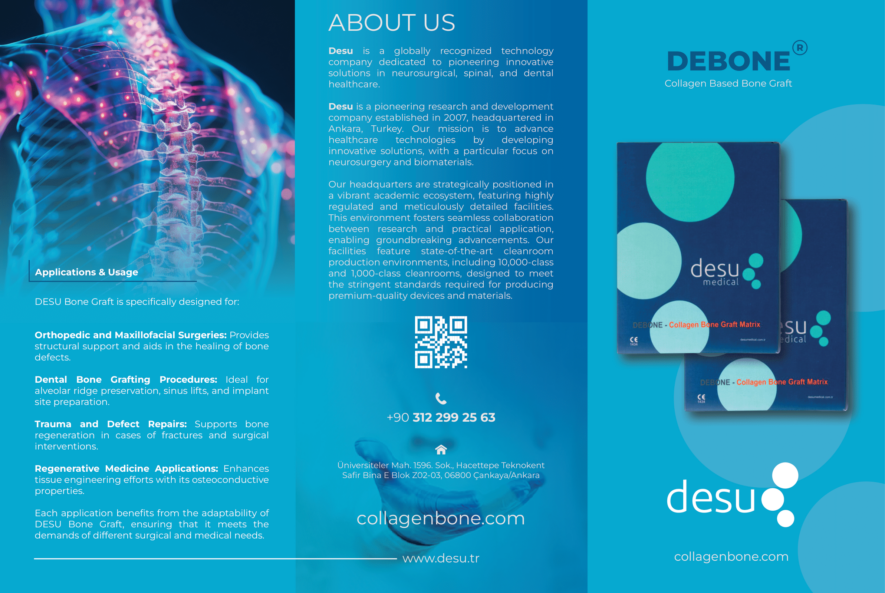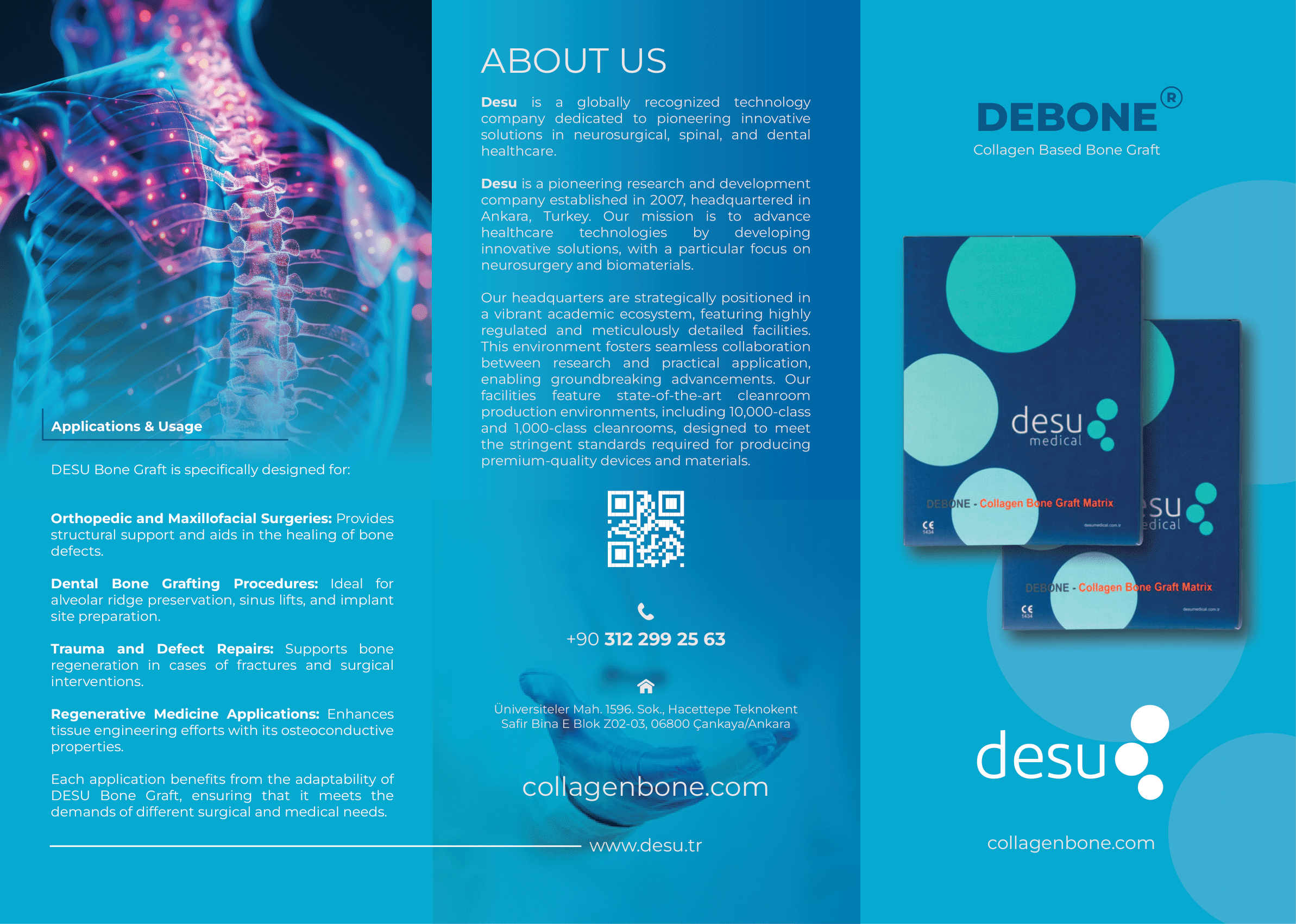
In the evolving landscape of regenerative medicine, the collagen bone graft has emerged as one of the most transformative solutions for bone repair and reconstruction. No longer is bone grafting limited to traditional materials or methods — modern clinical practice demands innovation, biocompatibility, and biological intelligence. At the heart of this evolution lies collagen — nature’s most abundant structural protein — now powering the next generation of bone graft materials.

Collagen Bone Graft
What Is a Collagen Bone Graft?
A collagen bone graft is a bioengineered scaffold designed to support and enhance the body’s natural bone healing process. Unlike conventional grafts that merely fill space or provide mechanical support, a collagen bone graft actively participates in cellular signaling, osteoblast recruitment, and tissue regeneration.
By combining Type 1 bovine collagen — known for its exceptional biocompatibility — with bioactive compounds like B-TCP (Beta-Tricalcium Phosphate), the collagen bone graft mimics the architecture of natural bone tissue. It guides bone formation while gradually resorbing into the body, leaving behind healthy, newly formed bone.
Why Collagen Matters in Bone Regeneration
Dr. Laura Jensen, Orthopedic Surgeon (Harvard Medical School) states:
“Collagen is not just a filler; it’s a biological messenger. In the context of bone grafting, Type 1 collagen provides the ideal environment for osteoblasts to attach, proliferate, and generate new bone matrix. Its natural composition ensures excellent patient tolerance and eliminates many complications associated with synthetic materials.”
Collagen’s triple-helix structure offers not only strength but also bioactivity. This is critical in guiding bone regeneration — particularly in complex surgical cases where the bone defect is critical-size or healing capacity is compromised.
Clinical Applications of Collagen Bone Graft
The versatility of collagen bone graft materials extends across multiple surgical fields:
1. Orthopedic Surgery
Used in fracture repair, joint reconstruction, and spinal fusion procedures, collagen bone graft materials provide stability while promoting rapid osseointegration.
2. Dental Implantology
Dentists and oral surgeons use collagen bone graft products for sinus lifts, ridge preservation, and implant site augmentation, ensuring optimal bone volume for successful implant placement.
3. Maxillofacial Surgery
Reconstructive procedures in the facial region benefit immensely from the biocompatibility and moldability of collagen-based grafts.
4. Trauma and Defect Repair
Trauma patients with bone loss or critical-size defects require graft materials that support both immediate stability and long-term healing — collagen bone grafts deliver both.
What Makes a High-Quality Collagen Bone Graft?
According to Dr. Miguel Santos, Oral & Maxillofacial Surgeon (Lisbon):
“Not all collagen bone grafts are created equal. The purity of the collagen, its cross-linking method, and the combination with bioactive particles like B-TCP determine the clinical success. I always look for graft materials that strike the perfect balance between resorption rate and mechanical integrity.”
A superior collagen bone graft must demonstrate:
-
More than 95% Type 1 Bovine Collagen
-
Controlled bioabsorption aligned with bone healing timelines
-
High porosity for vascularization
-
Sterile production in ISO-certified cleanrooms
-
No chemical residues or inflammatory agents
Key Benefits of Collagen Bone Graft in Surgical Practice
1. Natural Osteoconductivity
Collagen bone grafts provide a 3D matrix that supports bone cell migration, attachment, and differentiation.
2. Excellent Biocompatibility
Because collagen mirrors the body’s own extracellular matrix, adverse reactions are rare.
3. Enhanced Bone Formation
Studies show that collagen bone grafts accelerate new bone deposition and shorten recovery periods compared to synthetic alternatives.
4. Versatility in Form Factors
Collagen bone grafts are available in granules, sponges, membranes, and custom shapes to fit diverse surgical needs.
Surgeons Speak: Clinical Reviews of Collagen Bone Graft
Dr. Yasemin Kaya, Neurosurgeon (Istanbul University)
“In spinal fusion cases, I rely on collagen bone grafts for their ease of handling and predictable integration. Especially in elderly patients or those with compromised bone quality, collagen grafts provide the biological support necessary for successful outcomes.”
Dr. David Liu, Implantologist (Singapore)
“Bone grafting in the oral cavity demands materials that integrate quickly and resist infection. Collagen bone grafts offer both — plus their resorption rate matches the speed of new bone formation, minimizing complications.”
Evidence-Based Results: What the Research Says
Multiple clinical studies support the use of collagen bone grafts:
-
A 2022 study in the Journal of Oral Implantology found that collagen bone grafts achieved 92% success rates in ridge preservation over 12 months.
-
Research in The Spine Journal (2021) demonstrated that collagen-based bone grafts reduced spinal fusion failure rates by 30% compared to synthetic graft materials.
-
A meta-analysis published in Clinical Orthopedics and Related Research (2020) concluded that collagen bone grafts promote faster osseointegration in dental and orthopedic applications.
Why Collagen Bone Grafts Are the Future of Regenerative Medicine
As healthcare shifts towards biologically intelligent solutions, collagen bone graft materials lead the way. They align with key trends in surgery:
- Minimally invasive techniques
- Reduction of donor site morbidity
- Enhanced patient recovery
- Sustainable biomaterials
Surgeons increasingly value solutions that integrate seamlessly into the body, reduce infection risks, and promote natural tissue regeneration.
Final Thought: Collagen Bone Graft as the Gold Standard in Bone Regeneration
Bone grafting is no longer a simple mechanical intervention — it is a biological partnership between science and nature. The collagen bone graft represents this partnership at its finest, offering a material that not only fills defects but actively guides the body toward healing.
Healthcare professionals worldwide now recognize the collagen bone graft as the gold standard for regenerative bone surgery — a solution backed by science, clinical expertise, and patient-centered innovation.
As Dr. Laura Jensen concludes:
“Collagen bone grafts are more than a trend — they are the future of bone repair. They reflect our growing understanding of biomaterials, tissue engineering, and patient safety.”




